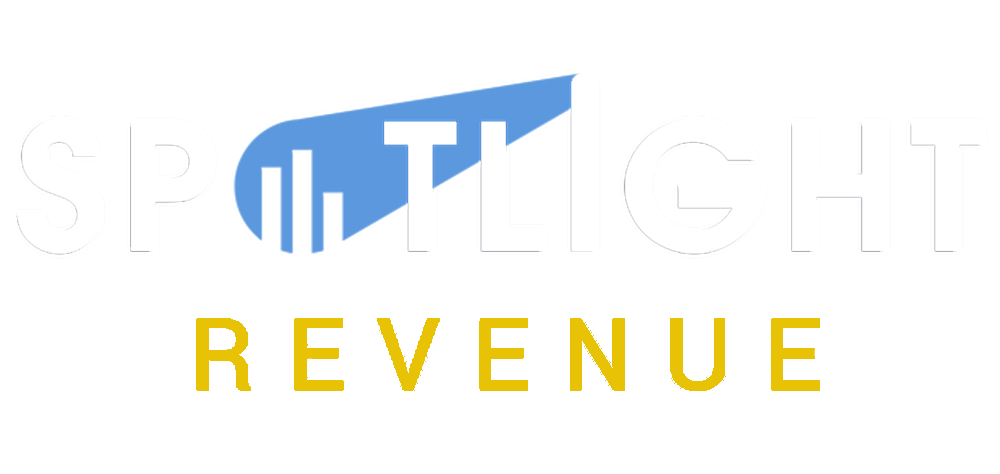THE BEST WEBSITE PLATFORM TO BUILD YOUR WEBSITE
So you want to build a website for your business or project… Now you must decide which website platform to use. Which platform is going to be the best for your needs? Do you need a third party to build it or can you do it yourself? These are questions that will most likely come up when you start the process of building a website. There are a bunch of different platforms you can choose from, but knowing which is best can leave your head spinning. That is why we have picked out four platforms for this post and will discuss the pros and cons of each so you can choose which will meet your specific needs.
WORDPRESS WEBSITE PLATFORM: SPOTLIGHT REVENUE’S PERSONAL FAVORITE
Here at Spotlight Revenue our personal platform of choice is WordPress. Our website is actually built on WordPress and we have a lot of experience with the platform.
Pros:
- Customization: WordPress is great for customization because the platform has tons of different themes and plugins. What’s great about the themes is that you can find one that fits your business’s specific style and needs. The plugins allow you to have the different capabilities you need such as turning your site into an ecommerce site by using the WooCommerce plugin. On top of that, if you are working with a capable developer, there are zero limitations on what can or can’t be done. With WordPress, developers can customize the theme as much as you would like or even go as far as building a completely custom theme from the ground up.
- Mobile Friendly: If you know anything about good websites, you know that they need to not only look good and function on a desktop but also on a mobile phone. Almost everyone in today’s society owns a smartphone and uses them on a daily basis to search websites. WordPress helps with this because the majority of their themes are what we call Responsive Websites. This means your site will automatically optimize itself on the mobile end with minimal to no extra steps from you.
- Blogging: WordPress plugins are making another appearance in this pro. The various plugins on WordPress cause it to be a go to for bloggers. WordPress is one of the cleanest and fastest places for blogging. The platform even has various features that help rate the readability of your content and helps you to improve your writing.
- SEO Friendly: This pro is one of the things that makes WordPress our personal favorite. The platform allows your site to be built with the ingredients to make your website SEO-ready. Again WordPress has hundreds of different plugins that allow you to optimize your website for ranking better on Google. The plugins help with focusing on keywords as well as meta tags and page load speed, plus everything else that you need to have a solid SEO foundation on your website.
Cons:
- Not All Free: One con when using WordPress is that some of the different themes and plugins do cost. Although the platform itself is free, costs can start to add up depending on the theme and plugins you use. You will need to sit down and come up with the different features you need for your website and determine your budget for the site. That being said not all themes and plugins cost and some are also relatively cheap so don’t let that turn you away from the platform.
- Some Web Design Knowledge Needed: Unlike some platforms such as Wix (which will be discussed later), WordPress is not the most novice friendly platform. It is not as simple as dragging and dropping what you want onto your website. This means you may need some web design knowledge or someone who has experience to help build your website. If you need someone with this experience please feel free to reach out to us here at Spotlight Revenue and we would be happy to help you bring your ideas to life.
WIX WEBSITE PLATFORM: BEST FOR THOSE NEW TO DESIGN
If you are wanting to build your website by yourself and are new to website design then Wix is most likely going to be your best choice. It is known for being a simple and relatively easy to use platform which makes it great for those wanting to build a site for the first time.
Pros:
- Easy to Use Features: Probably the most important pro of Wix is that it has so many easy to use features. A lot of these features are “drag and drop” which allow you to place them exactly where you want them on the page. Some features include editable forms and video embedders. Having all of these features allows anyone to design their website how they see fit even if they do not have any web design experience.
- Templates: Similarly to WordPress, Wix has a multitude of themes or templates. Wix actually offers over 500 different templates. This means you are able to find one that fits your style for your website. You can either take a predesigned template and customize it to your needs or you can also start from scratch and design your site completely on your own.
- Support: One thing that is very helpful for those using Wix, especially those new to design, is the support the Wix team provides. Wix has a specific platform just for helping its users. More times than not you can find the answer to your question on this platform and many have videos to help along with text answers. If you have a question that happens to not be answered here, the Wix Support Team is great with responding to these questions through email. This is crucial for those who are just starting out.
Cons:
- Separate Mobile Optimization: Unlike WordPress, Wix is not responsive. This means you will have to go into the mobile view each time you make a change to your site to make sure it is optimized for mobile view. This can become a pain when you are making a bunch of changes at one time. Also, if you forget to make changes on the mobile view then your website might not show up well on a phone. Even when you make changes, your mobile view may not look as clean as it will on the desktop.
- Not SEO Friendly: Even though Wix has tried to make lots of updates to the SEO functionality of their platform, they still haven’t quite matched the quality of some of their competitors. Since Wix is limited to the constraints of their website builder, you do not have the flexibility of a custom coded website, to optimize your different SEO elements to ensure your website is SEO friendly.
WEBFLOW WEBSITE PLATFORM: BEST VISUALLY
Webflow prides itself in the fact that you can build your website in what they call a “completely visual canvas” with absolutely no code. This is definitely an enticing competition for those wanting to design their own website but lack knowledge in coding. Webflow considers itself the “modern WordPress alternative” and allows you to build your site utilizing HTML, CSS, and JavaScript.
Pros:
- No Code: Probably the most obvious pro of Webflow is that it does not require experience with code. For many business owners this is an important component because it means they can actually build their website themselves without having to have a developer. The Webflow designer allows anyone to customize their site how they want to.
- Flexible Paid Plans: Although paying in and of itself is not really a pro, Webflow has multiple different plans which allow you to choose what works best for you. They have site plans which are for the web design basics and account plans which have more advanced features. Within each of these categories are subcategories making sure you are only paying for a plan that fits your needs.
- CMS: Webflow includes a great content management system within their platform. Webflow is very flexible and allows you to make edits right on your live site. The platform also includes integrated hosting so you do not have to find a separate place to host your site if you don’t want to. Another feature of Webflow’s CMS is that you can easily move your information from your current platform to Webflow without losing any data.
Cons:
- Learning Curve: Although Webflow does not use code and is fully customizable many say using it for the first time can be a learning curve. Webflow tends to not be as self explanatory as some of the other platforms such as Wix and may take longer to get the hang of. The platform does provide what they call Webflow University which is meant to help explain web design but it still takes time because the platform is complex.
- Lack of Customer Service: One complaint that many have for Webflow is its apparent lack of customer service. They have a support chat but you are only able to talk to their chatbot. The chatbot will try to help you find an article to help or will then send an email to customer service; however, you do not have the option to chat with a live person. This means if you have an issue that the chatbot cannot help with then you will need to wait 24 – 48 hours for an answer from a real person. Considering Webflow seems to have a learning curve for most people this can become an issue real quick.
CUSTOM SITES: MOST FLEXIBLE
Of course the most flexible website is going to be one that is custom built for your company. By using code you can add in the features you want and have a design that is unique to your business.
Pros:
- Customized: As stated above the biggest pro for a custom website is in the name…it’s custom. This means you do not have to follow a specific theme or template provided by the website platform. Also your website will be unique to your company instead of generic one that you may find elsewhere. This is definitely enticing to those who have a specific style or idea in mind for site and do not want to have to conform it to a predesigned template.
- Zero Limitations: The website platforms we have talked about so far are great and have a lot of features; however, each of them have their own limitations. This is why a custom site is such a positive. With the right developer your design and feature choices can be endless and you do not have the limitations you find on one of the platforms. If you have big dreams for your website and want to add a lot of stuff to it then a custom site may just be what you are looking for.
Cons:
- Coding: With a custom site comes the need for an understanding of coding. Unlike platforms such as Wix where anyone can use them and all you need is to drag and drop, making a custom site is going to require specific code. This means that not everyone is going to be able to create a custom site on their own. You will most likely need to hire a developer to help. Also, you will want to make sure you get a developer who has a lot of experience with coding a site. This can be a drawback for some because they cannot create and make changes to the site by themselves.
- Cost: Because of your need for coding experience custom sites always will take more time and also money. You will usually have to hire a developer specifically for this site and paying them to create the site from scratch is going to be way more expensive than the fees a platform may charge. Also, if there are ever any changes you want to make to your site you will need to pay the developer to make these fixes instead of doing them yourself. However, you will be paying for what you get which is a very unique website that is custom to you.
CONCLUSION
When starting a business, creating your website is always an important step. For many new business owners this can be overwhelming because they do not know where to start or which platform to use. These are not the only platforms but they are some of the most popular and some of our top picks here at Spotlight Revenue. When starting your website design process it is best to decide what features are most important and go over the pros and cons of each platform. If you decide you don’t want to go through this process alone please reach out to us at Spotlight Revenue and we would love to help bring your website dreams to reality.



